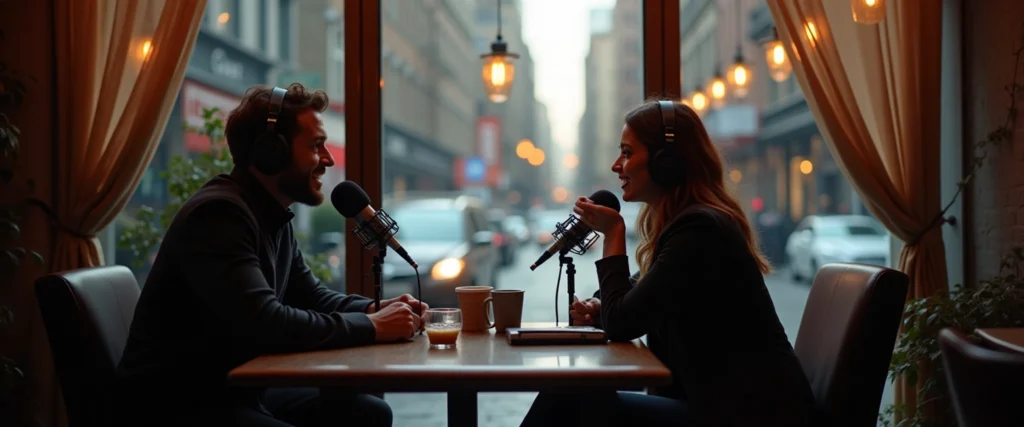When I search for an audiobook, my usual choice is Amazon’s Audible (or our Polish Audioteka). This usually ensures good recording quality, and I have no concerns about copyright issues.
However, occasionally, I discover that the best available recording is found on LibriVox, YouTube, or a similar service with a mix of amateur and professional content. This is especially true when searching for not-so-popular books recorded in the not-so-mainstream language I want to practice.
Amateur recording: a list of typical sins

Producing high-quality audio requires both a good microphone, setting, and knowledge. In amateur recordings, the voice acting is often terrific, yet the technical setup might be flawed. Some of the common issues are:
- Background noise (air conditioning or computer fans)
- Poor quality of microphone
- Incorrect distance from the microphone
- No postproduction that could have compensated for the above mistakes.
Idea: use AI tools to denoise audiobooks and improve quality
When I recorded my podcast a few years ago, the post-production was quite a manual process. I cannot remember any tool allowing any “Intelligent enhance” action that would produce good results back then.
But today, we have AI-powered voice synthesis systems like OpenAI text-to-speech or Azure AI Speech Studio, which produce crystal-clear AI-generated voices that sound like humans.
So, with those rapid technological advancements in mind, I decided to find out if there are any AI-powered tools for enhancing the human voice in flawed recordings.
Denoising audiobooks with AI tools
Enough talk. Let’s look at my test comparing a few tools that promise to do the job. I recommend headphones to hear nuances like the level of noise or how pleasant the text is to listen to.
